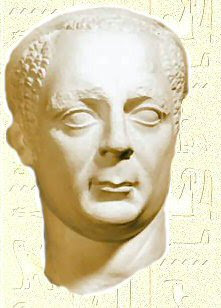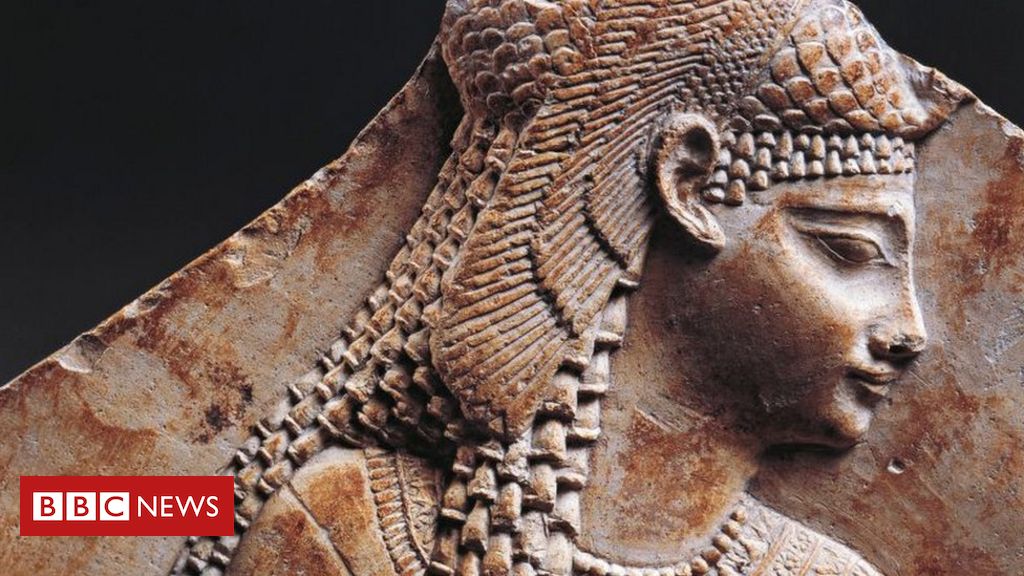The Outer Courtyard, the First Pylon, the Temple of Isis, …
Por um escritor misterioso
Descrição
The most conspicuous feature of both islands was their architectural wealth. Monuments of various eras, extending from the Pharaohs to the Caesars, occupy nearly their whole area. The principal structures, however, lay at the south end of the smaller island. The most ancient was a temple for Isis, built in the reign of Nectanebo I during 380-362 BC, which was approached from the river through a double colonnade. Nekhtnebef was his ancient Egyptian royal titulary and he became the founding pharaoh of the Thirtieth and last native dynasty when he deposed and killed Nepherites II. For the most part, the other ruins date from the Ptolemaic Kingdom, more especially with the reigns of Ptolemy II Philadelphus, Ptolemy V Epiphanes, and Ptolemy VI Philometor (282-145 BC), with many traces of Roman work in Philae dedicated to Ammon-Osiris. In front of the propyla were two colossal lions in granite, behind which stood a pair of obelisks, each 13 metres (43 ft) high. The propyla were pyramidal in form and colossal in dimensions. One stood between the dromos and pronaos, another between the pronaos and the portico, while a smaller one led into the sekos or adyton. At each corner of the adytum stood a monolithic shrine, the cage of a sacred hawk. Of these shrines one is now in the Louvre, the other in the Museum at Florence. Beyond the entrance into the principal court are small temples, one of which, dedicated to Isis, Hathor, and a wide range of deities related to midwifery, is covered with sculptures representing the birth of Ptolemy Philometor, under the figure of the god Horus. The story of Osiris is everywhere represented on the walls of this temple, and two of its inner chambers are particularly rich in symbolic imagery. Upon the two great propyla are Greek inscriptions intersected and partially destroyed by Egyptian figures cut across them. The monuments in both islands indeed attested, beyond any others in the Nile valley, the survival of pure Egyptian art centuries after the last of the Pharaohs had ceased to reign. Great pains have been taken to mutilate the sculptures of this temple. The work of demolition is attributable, in the first instance, to the zeal of the early Christians, and afterward, to the policy of the Iconoclasts, who curried favour for themselves with the Byzantine court by the destruction of heathen images as well as Christian ones.[citation needed] It
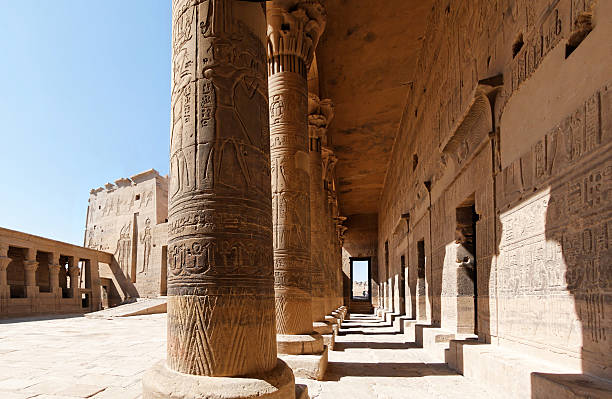
240+ The Temple Of Isis From Philae Aswan Egypt Stock Photos, Pictures & Royalty-Free Images - iStock

Karnak Temple First Pylon

Philae – following hadrian photography

Temple of Isis - Students, Britannica Kids

An Introduction to Ancient Egyptian Temples - Sailingstone Travel

Greco- Roman monuments in Aswan

An Awesome Travel Guide to The Temple of Isis in Egypt - CHARLIES WANDERINGS

First pylon temple isis philae hi-res stock photography and images - Alamy
Pylon (architecture) - Wikipedia
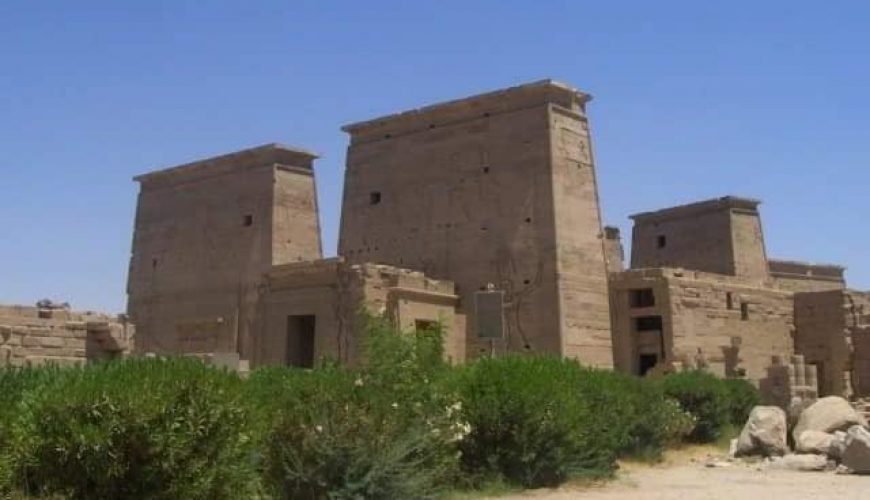
Egypt Magic [1486] The temple of the goddess Isis on the island of Philae - Egypt Magic Tours

File:The Temple of Isis from Philae, First pylon and colonnade, Lake Nasser, Egypt.jpg - Wikipedia

Design of the Temple of Isis from Philae, Egypt - Travel To Eat
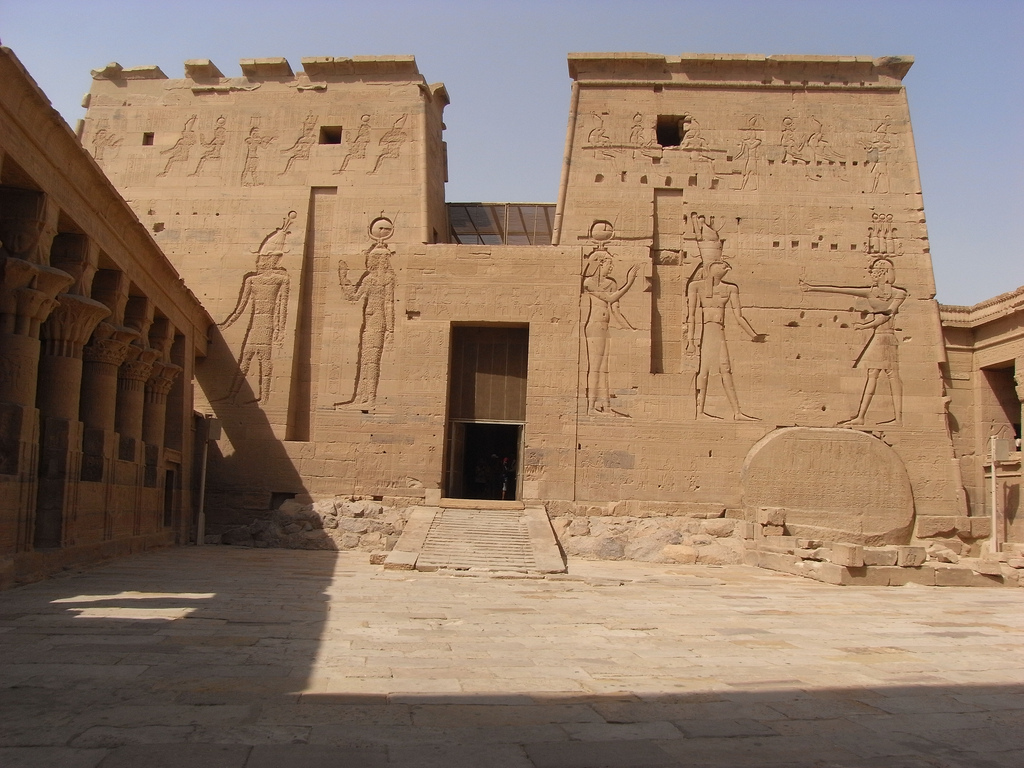
The Ancient Egypt: Philae Island .. The Forecourt of the Temple of Isis and The Second Pylon .. Part ( 8 )
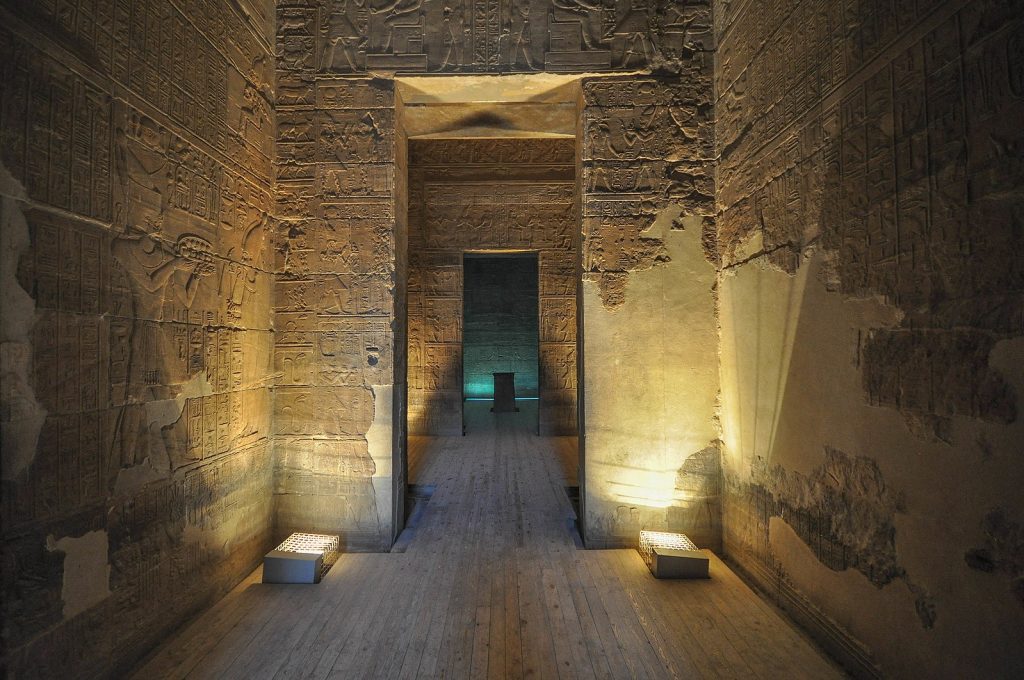
Temple of Isis at Philae
de
por adulto (o preço varia de acordo com o tamanho do grupo)

